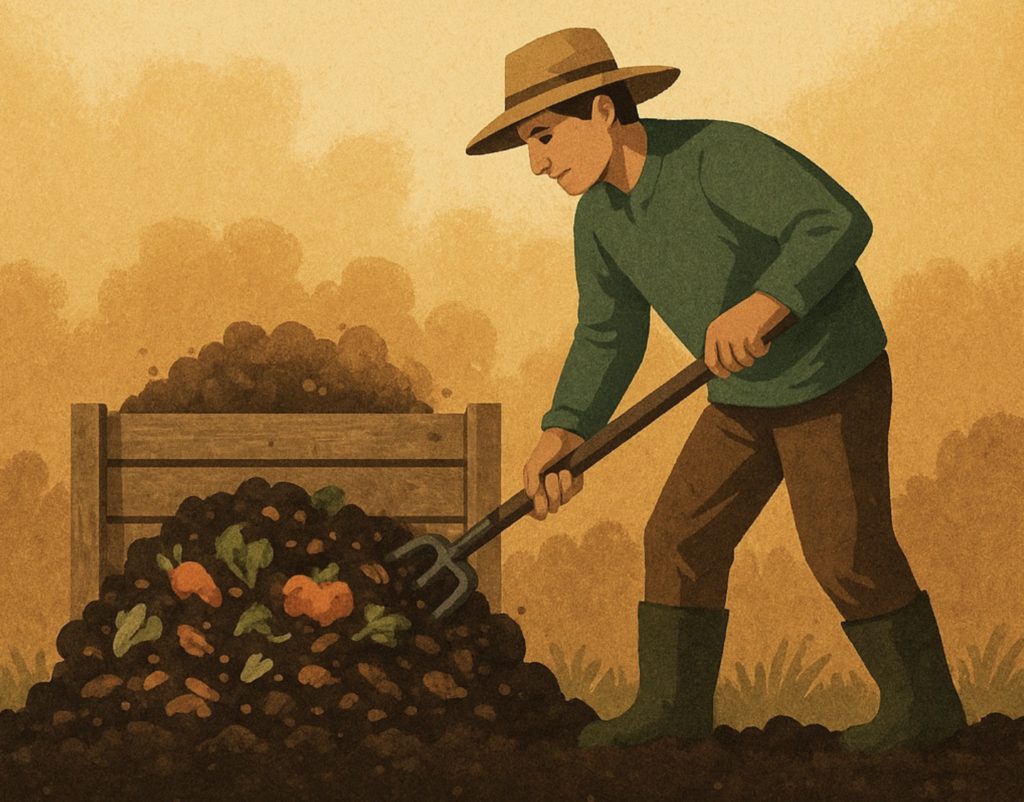
Last week, I watched my neighbour toss decomposing vegetables into his compost bin. The smell was putrid, yet within months, this rotting matter would transform into the richest soil in his garden—the very foundation for his prize-winning tomatoes.
It’s a process we understand instinctively in horticulture but resist fiercely in life. We want to discard our failures, bury our setbacks, and pretend our darkest moments never happened. But what if we’ve got it entirely backwards?
The Paradox of Growth
The most counterintuitive truth about human development is this: our greatest periods of growth don’t emerge from our triumphs, but from the debris of our disasters. Studies of post-traumatic growth show that people who’ve endured significant hardship often report higher levels of life satisfaction and clearer purpose than those who’ve sailed through life unscathed.
This isn’t about romanticising suffering—trauma is real and devastating. Rather, it’s about recognising that within the wreckage of our worst experiences lies the raw material for transformation. The question isn’t whether we’ll face adversity, but whether we’ll have the wisdom to compost it.
The Decomposition Process
Watch a master gardener at work. They don’t simply throw organic waste into a pile and hope for the best. They understand that decomposition requires specific conditions: the right balance, adequate moisture, proper aeration, and most critically, time and patience.
The same principles apply to psychological growth. Our setbacks need processing, not suppression. They require us to sit with discomfort, to examine what went wrong, to extract the lessons buried within the mess.
Take the entrepreneur who loses everything in a failed venture. The natural impulse is to forget, to move on, to pretend it never happened. But the entrepreneurs who truly succeed are those who forensically analyse their failures, who compost their mistakes into wisdom. They understand that every error contains information, every setback holds a seed of insight.
The Fear of Festering
We avoid processing our hardships because we fear they’ll consume us. But there’s a crucial difference between productive reflection and destructive rumination. Productive reflection asks: “What can I learn?” Destructive rumination asks: “Why me?” One transforms pain into wisdom; the other transforms it into bitterness.
The gardener who neglects their compost ends up with a stinking mess. But tend to it properly—turn it regularly, maintain the right conditions, give it time—and decay becomes renewal.
The Richest Soil
Some of history’s most significant contributions have emerged from the compost of catastrophe. Darwin’s theory of evolution was shaped by his struggle with chronic illness and loss. Lincoln’s leadership during America’s darkest hour was forged in the crucible of his own depression and failures.
These weren’t people who avoided hardship—they were people who learned to metabolise it. They understood that excellence isn’t the absence of failure, misfortune and disadvantage; it’s about being able to use life’s rainy days as fuel for improvement.
The irony is profound: we spend enormous energy trying to avoid the very experiences that could make us most resilient, most empathetic, most wise. We treat our struggles like waste to be discarded when they’re actually raw materials waiting to be processed.
Tending the Garden
This doesn’t mean seeking out suffering or glorifying pain. It means changing our relationship with the inevitable difficulties life presents. When setbacks occur—and they will—we can choose to see them as interruptions to our growth or as integral to it.
The next time you face a significant challenge, resist the urge to dispose of it quickly. Instead, ask yourself: What conditions does this experience need to transform into something valuable? What can I learn? How might this make me stronger, wiser, more compassionate?
Your failures, your losses, your moments of profound disappointment—these aren’t interruptions to your story. They’re the compost from which your character grows, the rich soil from which your best self emerges.
The gardener knows something we often forget: the most beautiful gardens grow from the darkest earth.